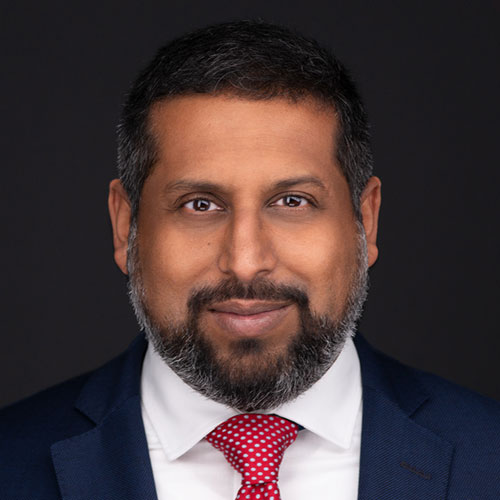Vilas Dhar is a leading global voice on equity in a tech-enabled world and serves as President and Trustee of the Patrick J. McGovern Foundation, a 21st century $1.5 billion philanthropy advancing AI and data solutions to create a thriving, equitable, and sustainable future for all.
As a prominent scholar and civil society advocate on artificial intelligence policy and human outcomes, Vilas serves as as a United Nations Secretary General appointee to the UN High-Level Advisory Body on Artificial Intelligence, the US Government Nominated Expert to the Global Partnership on AI, as a member of the OECD Expert Working Group on AI Futures, on the Global Future Council on AI at the World Economic Forum, on the Advisory Council at the Stanford Institute for Human-Centered Artificial Intelligence (HAI), and as Expert Contributor to OECD.AI. Vilas is a frequent lecturer at the Harvard University Kennedy School, Columbia University, and Stanford University and a regular contributor to media outlets including The Wall Street Journal, BBC, Time Magazine, NBC News, and ABC News. His LinkedIn Learning course, Ethics in the Age of Generative AI, has been translated into six languages and reached over 100,000 learners worldwide.
Beyond matters of artificial intelligence policy, Dhar is a leading voice in philanthropy and civil society. He is an Advisor to MIT SOLVE and serves on the Boards of Directors at AccessLex, the Christensen Fund, and the Greater Boston Chamber of Commerce, and he is the Chair of the Center for Trustworthy Technology. He has been named a Young Global Leader by the World Economic Forum, and has previously been appointed Senior Fellow of the Berggruen Institute, the Gleitsman Fellow on Social Change, Practitioner Resident on Artificial Intelligence at the Rockefeller Foundation’s Bellagio Center, and Entrepreneur-in-Residence at the University of Illinois.
He holds a J.D. from NYU School of Law, an M.P.A, from the Harvard Kennedy School, and dual Bachelor’s degrees in Biomedical Engineering and Computer Science from the University of Illinois, where he was named University Chancellor’s Scholar. His doctoral dissertation, in progress at the University of Birmingham, drives novel approaches to economic and policy infrastructure for a data-enabled society to support and empower vulnerable populations.



